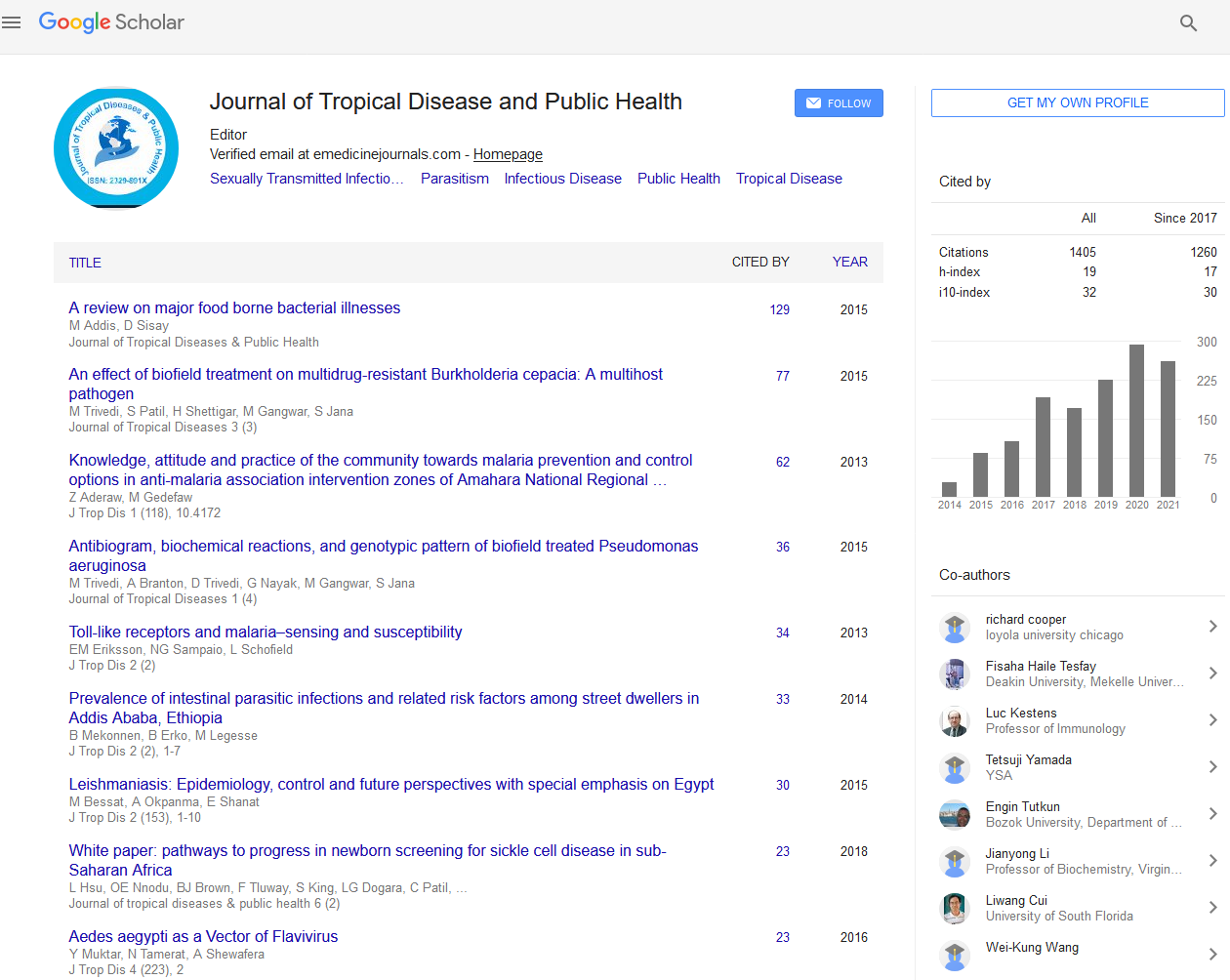Indexed In
- Open J Gate
- Academic Keys
- ResearchBible
- China National Knowledge Infrastructure (CNKI)
- Centre for Agriculture and Biosciences International (CABI)
- RefSeek
- Hamdard University
- EBSCO A-Z
- OCLC- WorldCat
- CABI full text
- Publons
- Geneva Foundation for Medical Education and Research
- Google Scholar
Useful Links
Share This Page
Journal Flyer

Open Access Journals
- Agri and Aquaculture
- Biochemistry
- Bioinformatics & Systems Biology
- Business & Management
- Chemistry
- Clinical Sciences
- Engineering
- Food & Nutrition
- General Science
- Genetics & Molecular Biology
- Immunology & Microbiology
- Medical Sciences
- Neuroscience & Psychology
- Nursing & Health Care
- Pharmaceutical Sciences
Abstract
Foodborne Outbreak, Meknes, Morocco, June 2017: What We Need to Learn
Touria Essayagh, Meriem Essayagh, Abderrahman El Rhaffouli, Mohamed Khouchoua, Sanah Essayagh and Asmae Khattabi
Introduction: A Foodborne outbreaks remain a public health threat in Morocco that require compulsory reporting and epidemiological surveys to halt any risk of epidemics. We report a foodoutbreak that occurred in Meknes on the 10th of June 2017. We assessed its extent, determined its source and enforced preventive measures.
Methods: We performed a retrospective cohort study among the guests of the dinner to identify risk factors associated with the illness. Data were analyzed using Epi Info version 7. Association between assumed risk factors and intoxication was estimated using the relative risk (RR) and its 95% confidence interval. Percentages as well as p-values were determined using Fisher's exact test.
Results: Among the 15 guests, 9 cases were ill with an attack rate of 60%. The mean age was 39 ± 11.9 years with a male/female sex ratio of 0.28. The mean incubation period was 3 ± 3h30. The symptoms reported were vomiting (88.9%), dizziness (88.9%), abdominal cramping (44.4%), headache (44.4%) and fatigue (33.3%). All cases had a positive outcome. Chicken consumption was associated with the intoxication (p=0.04). The cook did not respect hand hygiene rules.
Conclusion: Although laboratory results were negative for microbiological and environmental germs, clinical signs suggest that the probable cause of intoxication are enterotoxins secreted by Staphylococcus aureus commonly found when hygiene is lacking and food storage is deficient. We recommend reinforcing public awareness on the importance of respecting the cold chain and the basic rules of hygiene.
Practical application: Our results show Defrosting the chicken for 7 hours without respecting the cold chain could be the cause of the proliferation of staphylococci and the production of enterotoxins. Some recommendations can be made following this survey, in particular: raising public awareness of the importance of respecting the cold chain and the rules of food hygiene.


